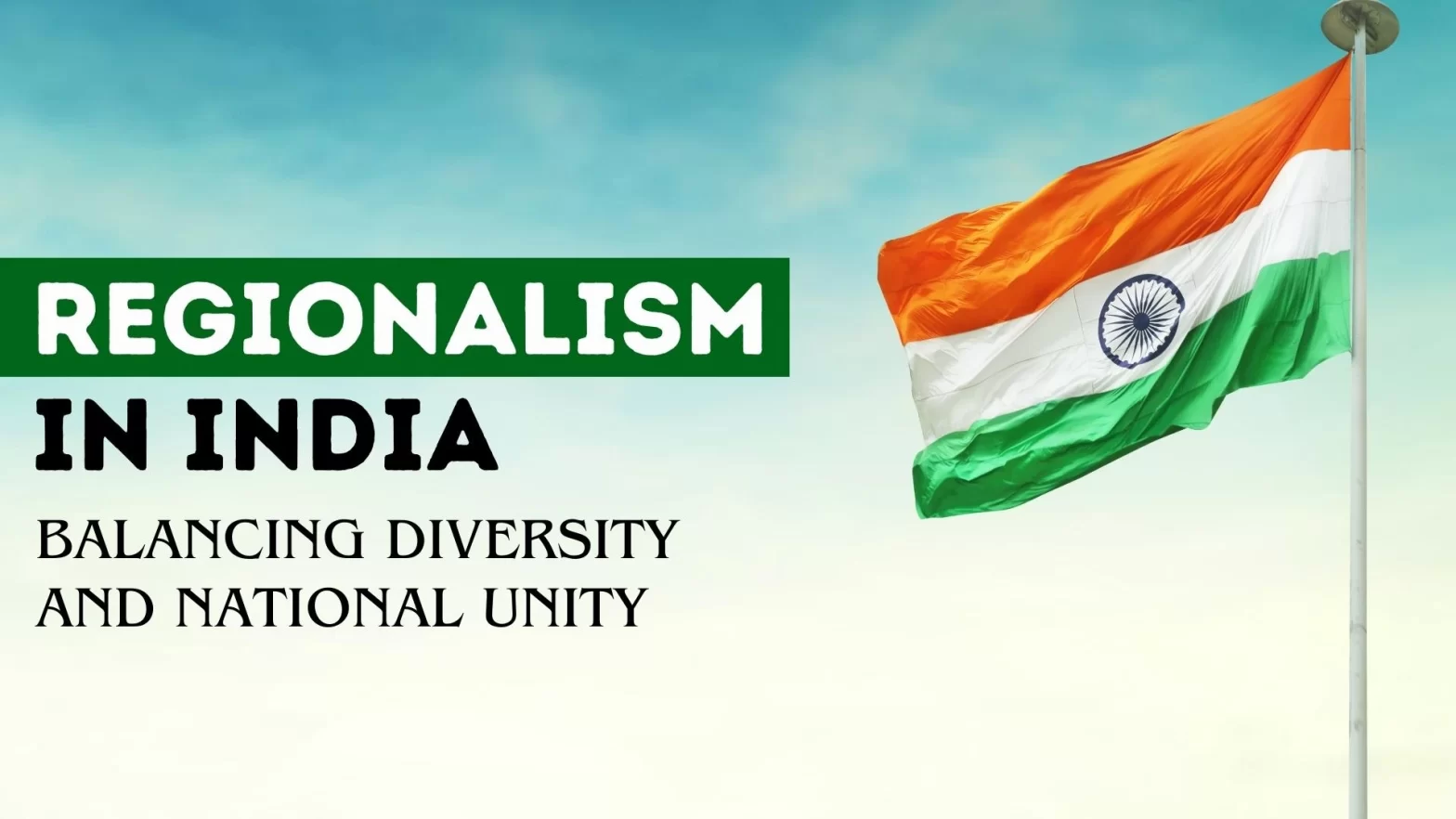| Relevancy for Mains: Regionalism and Salient Aspects of Diversity in India. |
Regionalism- A Political Ideology: It focuses on the interests of a particular region, group of regions or other subnational entity. It is a strong attachment to one’s own region.
Fostering Unity in Diversity: Positive Dimensions of Regionalism in India
- Promotes regional culture and language by preserving local cultures, traditions, literature, art forms, cuisine etc.
- Encourages healthy competition among different regions to compete to attract investment, talent and tourism which fosters development.
- Ensures regional representation to ensure that local issues and voices are represented at the national level.
- Accountability and decentralization by putting pressure on national parties for regional needs.
- Fosters participation as it represents regional aspirations and ethnic identities.
- Checks concentration of power by reducing dominance of few groups.
- Responsive governance as it is more responsive to regional needs.
- Balanced national development for equitable development across all regions of the country.
- Unity in diversity and strengthens the Constitutional values.
- Vision of shared nationhood in the nation’s future.
Dangers of Extreme Regionalism: Undermining National Unity and Governance in India
- Breeds petty parochialism and can lead to intolerance of other cultures.
- Promotes divisive politics that amplifies differences and divides people.
- Triggers separatism and can threaten national unity and integrity.
- Fosters narrow interests rather than larger national interests.
- Creates inequality due to unequal distribution of resources and opportunities.
- Undermines meritocracy and can promote mediocrity.
- Obstructs national consensus on national issues and reforms.
- Promotes competitive populism by inciting regional sentiments to gain votes.
- Distorts identities due to aggressive regional identities and people get forced into linguistic/regional boxes.
- Triggers conflicts and violence, resulting in violence in many parts of India.
- Weakens national parties and prevents emergence of national leadership.
Manifestations or Expressions of Regionalism in India: Rise of regional political parties, Dominance of state leaders, Language-based subnationalism, Sons of the soil movements, Inter-state river disputes, Demands for statehood, Anti-migrant agitations, Secessionist struggles, etc.
Dynamics of Regionalism in India: Exploring Influential Factors
- Geographical Factor: The linguistic distribution along geographic boundaries.
- Historical Factor: India’s regionalism was evident in the ancient, medieval and colonial ages.
- Economic Factor: Uneven economic growth and development in many parts of the country.
- Cultural Factor: Southern India is evidently different from the rest of the Country.
- Rituals and Festivals: They are numerous and vary according to the region.
- Politico-Administrative Factors: Local regions have different local issues.
- Ethnic Factors: India is home to as many as 645 Scheduled tribes.
- Scarcity of Resources: This competition is fuelled by regional aspiration.
Fostering National Unity: Government Initiatives and Institutional Frameworks in India
- The Backward Region Grant Fund (BRGF) Programme, Pradhan Mantri Khanij Kshetra Kalyan Yojana (PMKKKY), State Reorganisation Act, 1956, North-eastern States Reorganisation Act, 1971, Ek bharat Shreshtha Bharat etc.
- Institutional structures like NITI Aayog, GST Council, Cultural connect and student exchange programme among state education Institutes, National Integration Council (NIC), North-Eastern Council (NEC), etc.
Constitutional Framework for National Unity and Integration in India
- Freedom of speech and expression (Art. 19), Interstate Council under Article 263, 5th and 6th Schedule to preserve tribal identity, Article 38 (DPSP) to deal with inequality, Schedule 7 (Division of Power), 8th Schedule (languages), Articles 79 and 80 (provisions of Rajya Sabha as Council of States) and Article 368 (amendment procedure – Ratification by States).
Way Forward: Fostering National Unity through Inclusive Development
The need of the hour is to develop each region of India and introduce a system of national education. There is a need to utilize the potentiality of the National Integration Council and Schemes like “Ek Bharat-Shreshtha Bharat” should be promoted more.
![]() 10 Nov 2023
10 Nov 2023
